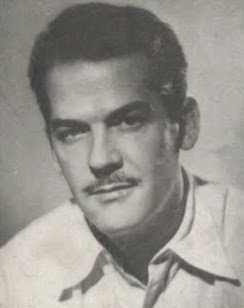The Mystery of the Folded Paper
Hulbert Footner
New York: Collier, n.d.
The British title is
The Folded Paper Mystery.
Any better?
I would have dropped "Mystery," which isn't much in evidence. The first page introduces Finlay Corveth, a young go-getter who mines the criminal underworld for material he uses in his short stories. Today he's on the hunt for of a brass ball that went missing during a break-in
at Nick Peters' flat. Tony Casino grabbed it from the bed frame, used it to knock out Nick, and then took off with the thing in his hand. What Tony and Fin don't know is that the ball contains an antique locket, which in turn contains a folded paper upon which is a message that leads to the basement of a large house in on the outskirts of New York. Sealed in the brick wall behind the furnace is a box that holds information relating to the line of succession in a fictional monarchy on the Black Sea.
I haven't spoiled a thing.
The Mystery of the Folded Paper tells a familiar tale; the reader will recognize it with the entrance of pretty Mariula, a sixteen-year-old private schoolgirl with a mysterious past.
There will be a murder and a suicide, and yet this is one of the happiest novels I've ever read: boy meets girl, boy never loses girl, and girl turns out to be a princess. Pay no mind that the boy is twenty-five and the girl is sixteen.
So, yes, a happy story... and not at all taxing! Anyone not paying attention will be set right by frequent explanations and summaries.
Small wonder that few people have bothered writing about
The Mystery of the Folded Paper; those who have invariably mention the appearance of the author's friend Christopher Morley as a character.
Is he, really?
The Mystery of the Folded Paper features someone named Christopher Morley, but he's a theatre director, not a writer. I suppose it may be that the character shares something of Morley's... um, character, but I'm not interested enough to investigate further.
It's also noted that
The Mystery of the Folded Paper is the first of Hulbert Footner's Amos Lee Mappin mysteries.
I was sorry to hear it.
Mappin is a bland figure. A bloated bachelor, spoiled by privilege, he lives a life of luxury and leisure in an expansive Manhattan apartment run by manservant Jermyn. Fin bows to the older writer's judgment, as younger writers so often do, for no other reason than he has published a few books. Though Mappin's deal with the criminal mind, he doesn't bring much insight. His greatest contribution comes in the way of funds.
Things are left to Fin, the boy who meets the girl, to carry the story to its predictable conclusion. Energetic, chatty and crazily optimistic, he's always ready with a word and smile, as in this scene which finds him running for his life beside a woman whom he's endangered:
"You're doing fine!" Fin said to Daisy, grinning. "It's no cinch to run uphill!"
Though I can't recommend
The Mystery of the Folded Paper, Fin's boyish over-the-top enthusiasm and cheery, positive attitude make it worth a fleeting look. This snippet of dialogue should suffice:
"Cheese! Tony, you sure are some nervy kid! It's a treat to hear you! You must tell me some more stories!"
Reaching the end of the novel, I couldn't help but wonder whether the whole thing wasn't a parody of something I'd never read. Again, I'm not interested enough to investigate further.
No, the only truly intriguing thing about
The Mystery of the Folded Paper is this:
With all Fin's snooping around the criminal class, never mind the stories he publishes about its crimes, wouldn't he have been offed long ago?
I suppose it's worth nothing that Fin doesn't feature in any of the other Amos Lee Mappin mysteries.
Object: A well-constructed 350-page hardcover in crimson boards with gold stamping, my copy belongs to Collier's Front Page Mysteries series. It was purchased earlier this year at London's
Attic Books. Price: $10.00.
Access: First published in 1930 by Harper in the United States and Collins in the United Kingdom. As one might expect, a cheap Burt edition followed. I haven't been able to determine just when the Collier edition appeared.
Used copies are not plentiful, but they are cheap. The least expensive, a jacketless, cocked copy of the Collins first, is listed online for US$7.61. The only copy of the Collier edition - not quite so nice as mine - can be had for US$20.00. One Pennsylvania bookseller is trying to get away with selling the Burt reprint as a first edition. Price: US$300. Steer clear.
Remarkably,
The Mystery of the Folded Paper was reissued in 2014 by Coachwhip Publications.
Seven of our university libraries hold copies.















































